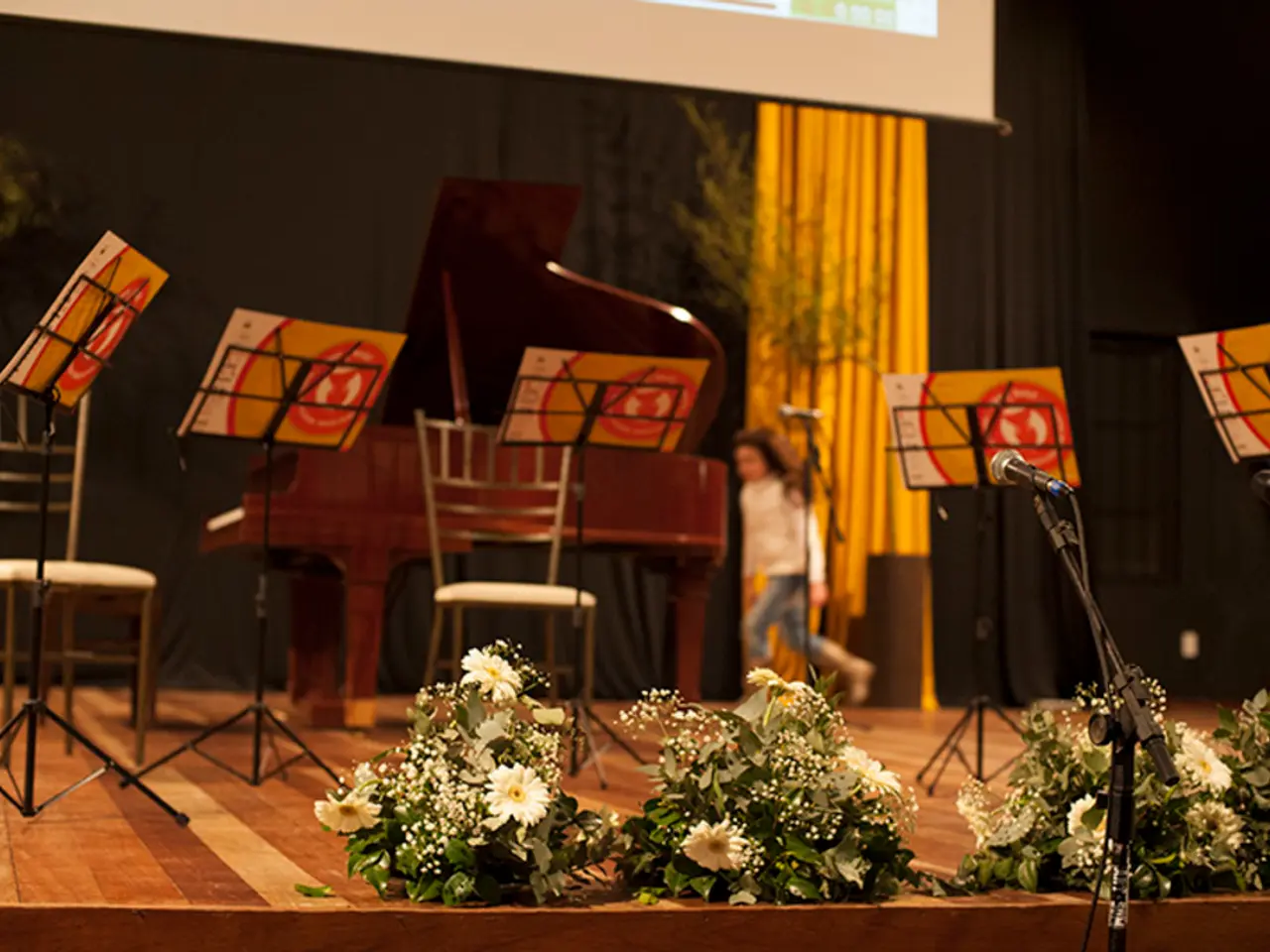Engaging Experiences Tailored for Visually Impaired Elderly Sufferers of Dementia
In a world where access to literature, entertainment, and social connections is often taken for granted, it's crucial to consider the unique needs of seniors who face challenges such as dementia and vision impairment. This article explores a variety of activities and strategies designed to promote cognitive function, emotional health, and social connection for this group.
Talking book readers, the Braille and Audio Reading Download (BARD) system, and podcasts are invaluable resources for visually impaired seniors, offering access to literature and contemporary auditory pleasure. For those with dementia, activities that stimulate memory and provide sensory engagement are particularly beneficial.
Music therapy, with its ability to evoke memories and improve mood, is a powerful tool for seniors with dementia and vision loss. Tactile games and crafts, scent-based activities, and memory care gardening also offer multisensory experiences that support cognitive functions and provide comfort. Storytelling and audiobooks, meanwhile, encourage connection and mental engagement without relying heavily on sight.
To ensure these activities are engaging and effective, it's important to keep them simple, repeatable, and structured. Incorporating sounds, textures, smells, and movement, and encouraging social interaction are also key. Creating safe environments and adapting tools and materials are essential considerations, as is leveraging familiar stimuli to increase comfort and participation.
Outdoor settings like parks can be ideal for support group gatherings, where seniors can engage in meaningful conversations, share stories, and build a sense of community. An Alexa device can amplify the accessibility of information and entertainment for visually impaired seniors, while old-time radio shows can bring joy and stimulate memories for those with dementia.
Activities like dancing, tandem cycling, and knitting offer unique benefits. Dancing is a powerful medium for self-expression, fostering a sense of joy and connection. Tandem cycling provides a sense of freedom, connection, and companionship for vision-impaired seniors, with a sighted partner handling the steering. Knitting, with its tactile experience, is both relaxing and mentally stimulating for seniors with dementia.
In conclusion, by focusing on multisensory engagement, memory stimulation, and social connection, we can help maintain cognitive function, emotional health, and dignity in seniors with dementia and vision impairment. These activities not only serve to stimulate and engage but also provide a sense of belonging and purpose, enhancing the quality of life for this vulnerable group.
- To complement these activities, workplace-wellness programs can incorporate science-based strategies to further support the emotional health and cognitive function of seniors.
- Fitness-and-exercise routines, tailored to their abilities, can boost mental health and overall well-being for seniors with dementia.
- Mens-health discussions and women's-health seminars can help address the unique health concerns of seniors as they age.
- Skin-care routines and therapies-and-treatments for common age-related issues can help seniors feel more confident and comfortable.
- In the realm of mental-health, CBD oil and meditation can provide stress relief and improve sleep quality for seniors.
- Lifestyle changes, such as health-and-wellness practices and fashion-and-beauty choices, can empower seniors to embrace aging with grace and vitality.
- Nutritious food-and-drink options, home-and-garden projects, and educational-and-self-development resources can contribute to the personal-growth and independence of seniors in retirement.
- Building relationships, whether with pets, friends, or family, can offer companionship and emotional support for seniors.
- Traveling, whether locally or internationally, can broaden horizons, create unforgettable memories, and foster a sense of adventure.
- Maintaining an active lifestyle through car maintenance, shopping trips, or career-development courses can help seniors feel engaged and purposeful.
- Engaging in hobbies like painting, writing, or crafting can stimulate creativity and provide a sense of accomplishment for seniors.
- Lastly, incorporating education on proper relationships, both romantic and platonic, can help seniors navigate this important aspect of life and maintain emotional well-being.





